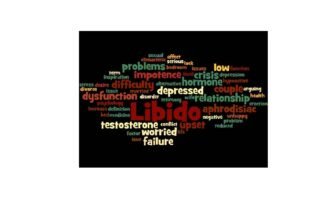Pregnancy weight gain is normal. However, if a woman is weighty before pregnancy, the extra weight gained during pregnancy can make the pregnancy more difficult in many ways.
The importance of maintaining an average weight during pregnancy cannot be overstated. If a pregnant woman has a BMI greater than 30, losing unhealthy weight during the pregnancy can be beneficial. Moreover, one need not fret over it because losing weight during pregnancy is possible.
However, doctors typically do not advise women to lose weight while pregnant. Instead, they recommend focusing on exercise and nutrition to keep the would-be mother and their unborn child healthy.
Weight loss is inappropriate for pregnant women who were already at a healthy weight when they became pregnant.
Is It Safe to Lose Weight In Pregnancy?
Obese women can reduce their risk of complications like preeclampsia and gestational diabetes by shedding off excess weight during pregnancy. Their weight loss program, however, should be monitored by a medical professional or a doctor.
Pregnant women are typically not urged to lose weight or follow a weight loss regimen while carrying a baby. A pregnant woman may experience morning sickness or a loss of appetite in the first trimester, which is typical.
However, she will likely regain that weight, maybe even more, throughout the next two trimesters.
Pregnancy weight gain
The recommended weight gain during the different phases of pregnancy tends to vary depending on the individual. For example, the first trimester does not lead to much weight gain as the baby’s size is small.
On the other hand, morning sickness and a loss of appetite in the first trimester can cause some weight loss. In addition, the weight gain may accelerate in the second trimester as the baby grows.
The baby continues to grow by the third trimester, but the weight gain stabilizes since the abdomen can become relatively compact, and eating may become difficult.
Is it safe to follow a weight loss diet during pregnancy?
Crash diets and calorie restrictions are not advised for pregnant women. Due to the lack of minerals and micronutrients essential from early pregnancy, a weight loss diet might cause mental impairment or respiratory and neurological disorders.
Reducing calorie intake during pregnancy increases a child’s risk of becoming obese later.
During pregnancy, a healthy diet rich in whole foods and fiber-rich foods is essential. It is recommended to consult with the doctor regarding the dietary changes that should be incorporated to have a healthy lifestyle.
Consuming fruits, vegetables, and lean protein instead of sugary foods, processed foods, and liquid calories can be a great starting point.
What is the safe way to lose weight during pregnancy?
Obesity during pregnancy can cause a variety of health problems, as well as complications during labor and delivery.
However, losing a lot of weight too quickly while pregnant can harm the mother’s and baby’s health. That is why it is essential to know about healthy weight loss so the baby’s health is not at risk.
- How much weight should be gained– It is essential to gain some weight during pregnancy, even if the expecting mother is overweight. The recommended pregnancy weight gain can be calculated using the pregnancy chart, and it is advisable to stay within that range.
Consistency is suitable for recording the weight simultaneously and on the same scale every day. Weight fluctuations are expected, so weighing very frequently will only cause unnecessary stress and anxiety.
- Reduction in calorie intake– For the baby to stay healthy, it is important to determine how many calories the body needs daily.
Pregnant women are advised to consume at least 1,700 calories daily. The daily calorie consumption should be within the allotted amount.
Keeping track of calorie intake is necessary because it will help monitor whether the right number of calories are being consumed.
- Daily workouts– Regardless of body weight, moderate exercise is advised during pregnancy as it reduces pain when the body goes through many changes.
Engaging in physical activity for at least 30 minutes every day is recommended. However, this busy time can also be broken into smaller intervals of 10 or 15 minutes.
Physical activities like swimming, walking, and yoga can be done to increase activity.
- Staying hydrated– Maintaining adequate hydration during pregnancy and otherwise is extremely important, especially when exercise is a part of the daily routine.
It is advised to consume at least 2 liters of water daily to keep the body and mind satiated and prevent unnecessary calorie intake.
- Eating healthy snacks– Substituting unhealthy food options with more nutritious options is an excellent way to reduce calorie intake significantly.
Whole food and low-fat dairy products should be chosen over processed foods. In addition, folate-rich food like beans, spinach, and strawberry consumption also helps to boost the metabolism.
- Eating smaller meals– It is better to consume smaller portions at shorter intervals than to drink a considerable number of calories at once.
Larger meals can cause heartburn and indigestion, further exacerbating other problems. On the other hand, smaller meals are easier on the stomach as they are more easily digestible.
- Taking vitamins and necessary supplements– It is highly crucial to maintain optimum nutrition through food and prescribed supplements during pregnancy, as along with the mother’s health, the baby’s health is essential.
It not only helps to keep the calorie intake in check but also helps maintain the body’s nutritional balance. However, supplements cannot be substituted for food as they are only meant to support nutrition and do not fulfill the daily intake.
Side effects of being overweight during pregnancy
Pregnancy is a highly complex process, and other health complications, such as obesity, can give rise to other health problems.
The common problems of being overweight or obese during pregnancy include-
Risks to the baby
- Chances of miscarriage increase.
- The newborn baby may be larger than the average, which can lead to obesity later in life.
- The baby might be at risk of developing diabetes or heart disease later in life.
- There might be neural tube defects in the newborn baby
Risks to the mother
- The chances of developing gestational diabetes increase, resulting in the baby’s size growth and difficult vaginal birth.
- Risk of preeclampsia increases, which can lower the blood flow to the fetus.
- Problems may arise during labor and delivery.
- Difficulties in keeping track of Fetus development in the womb.
- Risk of sleep apnea increases, which can cause fatigue and lead to disorders like high blood pressure.
- The danger of urinary tract infections (UTIs) during pregnancy and the postpartum period increases
- Can cause blood clotting leading to complicated delivery
- Increased chances of infection and blood loss in cases of C-section
- Labour might be delayed and would need artificial induction
How can weight loss during pregnancy affect the baby?
Losing excessive weight can be unhealthy and detrimental to the baby’s and the mother’s health.
Unhealthy weight loss, caused primarily due to morning sickness or loss of appetite, can begin in the first trimester of pregnancy and continue until the first trimester ends.
Losing weight during pregnancy is not always healthy because it can harm the pregnant woman and her baby’s health. Some complications of weight loss during pregnancy are listed below:
- The baby can be malnourished and underweight when it is born
- The chances of miscarriage increase in the first trimester due to anorexia
- Reduction in the levels of amniotic fluid, which is crucial to the healthy growth of the baby.
- The baby may not be able to develop proper cognition
- The immunity of both the mother and the baby can be compromised, and the body may be more vulnerable to infections.
Things to be careful about when attempting to lose weight during pregnancy
As previously stated, body weight can significantly impact the mother’s and your baby’s health. A healthy weight before pregnancy is preferred.
However, if that is not possible, it is strongly advised against losing weight drastically during pregnancy if the mother-to-be is overweight or obese. In addition, a pregnant woman should not radically reduce her calorie intake or exercise excessively.
Before making any choices, it is essential to consult with the doctor. Instead of focusing on weight loss, the focus should be on weight management.
Pregnancy is when the expecting mothers should take care of themselves and the health of the growing child. Some weight loss can be achieved during pregnancy; however, striving towards healthily losing weight is recommended.
There is simply no better time than pregnancy to make substantial lifestyle changes. Nevertheless, these changes should not negatively impact the health of the child or the baby.






